Quality of Life
Since ensuring an adequate quality of life for seniors is a shared responsibility, the Réseau FADOQ asks Quebec society to formally include health, security, well-being and belonging in all their decisions, policies, management methods and relationships for all people 50 and older. The Réseau FADOQ hopes that the action plans encompassing the principles of an adequate quality of life for seniors will be adopted by citizens, governmental institutions, private businesses and community. To do so, we encourage you to commit meaningfully by signing the social contract and wearing the silver button proudly.

Social Contract
in favour of an adequate quality of life for seniors in Quebec
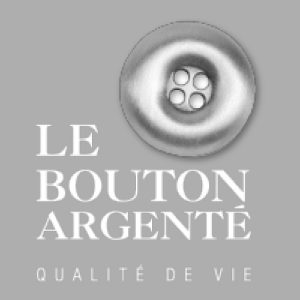 The silver button is a symbol of the movement for an adequate quality of life for seniors that has been implemented by the Réseau FADOQ. This symbolic object represents the four fundamental pillars that form the basis of a new social contract proposed by the Réseau FADOQ to promote quality of life, namely, health, security, welfare and belonging.
The silver button is a symbol of the movement for an adequate quality of life for seniors that has been implemented by the Réseau FADOQ. This symbolic object represents the four fundamental pillars that form the basis of a new social contract proposed by the Réseau FADOQ to promote quality of life, namely, health, security, welfare and belonging.
By wearing this silver button, you assert your commitment to promote meaningful actions that will have a direct impact on an adequate quality of life for today’s and tomorrow’s seniors. The Réseau FADOQ encourages civil society, organizations, businesses and elected officials to sign the social contract and wear the silver button proudly.
Quebec, like most western jurisdictions, is an aging society. Our province is in fact the second-fastest-aging society. Starting immediately, issues concerning seniors must be prioritized and come at the forefront of political, economic and social concerns.
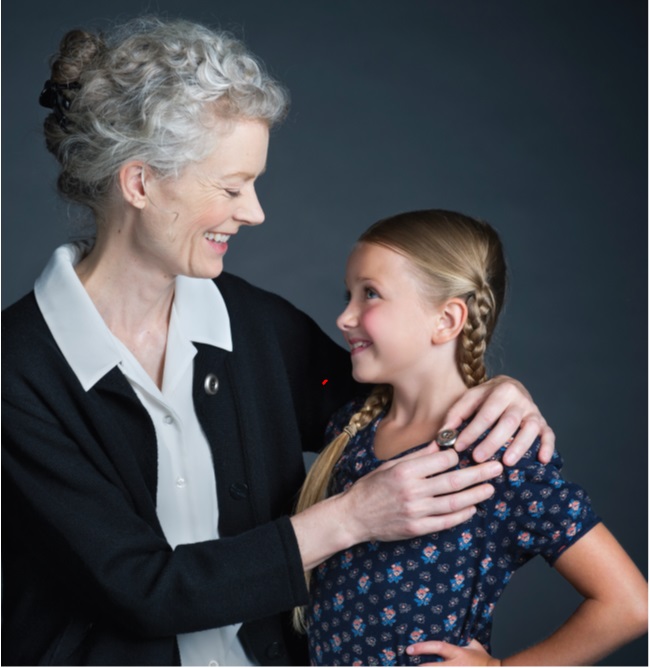 The Réseau FADOQ is worried about the impacts of the aging population on the quality of life of seniors, particularly those that will result from the precariousness of pension plans and the pressure on the healthcare network and social services that take care of aging people. As a society, we consider it essential to acknowledge the necessity of committing ourselves responsibly to make an adequate quality of life for seniors a priority.
The Réseau FADOQ is worried about the impacts of the aging population on the quality of life of seniors, particularly those that will result from the precariousness of pension plans and the pressure on the healthcare network and social services that take care of aging people. As a society, we consider it essential to acknowledge the necessity of committing ourselves responsibly to make an adequate quality of life for seniors a priority.
A Rapidly Aging Society
In Quebec, people 50 and older represent 37 % of the population. This proportion will reach 42 % in 2021 and 44 % in 2031. Moreover, Quebec is on the verge of experiencing a period when people 50 and older will be more numerous than people aged 20-49, which has never occurred in the past.
The aging population phenomenon, the effects of which are already being experienced at many levels, will therefore keep on strengthening over the next few decades. The low birth rate, which is lower than the population replacement rate, is partly responsible for this demographic imbalance. If there were no immigration policy with an objective of mitigating the birth deficit and counter the aging population, the shock would be even more brutal.
Another factor to consider : the improvement of life expectancy that has been made possible by advances in science, which now allow for a longer and especially healthier life.
A More And More Limited Family Support Network
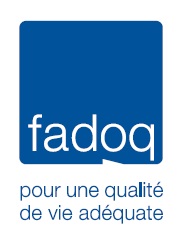 Historically, Quebec was developed according to a model in which family was the core of the social fabric. As families were numerous, every individual had quite an extensive support network. Traditionally and naturally, seniors were taken care of by their families. first to clearly break with this model. In contrast to their parents, they had fewer children. Now, family as an organization no longer has the ability to provide full support efficiently to seniors. Given the growing scarcity of familial resources, society has to provide an adequate quality of life to seniors regardless of the services and resources required by a person’s state of health.
Historically, Quebec was developed according to a model in which family was the core of the social fabric. As families were numerous, every individual had quite an extensive support network. Traditionally and naturally, seniors were taken care of by their families. first to clearly break with this model. In contrast to their parents, they had fewer children. Now, family as an organization no longer has the ability to provide full support efficiently to seniors. Given the growing scarcity of familial resources, society has to provide an adequate quality of life to seniors regardless of the services and resources required by a person’s state of health.
A Trend Toward Senior Poverty
In addition to their growing numbers, seniors have to face an overall decline in their financial resources. For several years now, we have observed a gradual disappearance of private pension plans. Will the baby-boomer generation be the last one to benefit from the financial protection that was made possible by defined benefit pension plans ? Today, only one out of three Quebecers benefits from this type of pension plan whereas one out of two people does not benefit from any group pension plan. The sustainability of public pension plans is therefore a subject of major concern.
In the context where public finances are under pressure, individual savings – especially retirement savings – should be part of a long-term strategy. However, a survey conducted in 2012 by Léger Marketing revealed that 68 % of Quebecers aged between 30 and 64 had no savings strategy with regards to their retirement. Moreover, many workers had difficulty in evaluating the income they would need at retirement. Otherwise, a staggering number of Quebecers will depend exclusively on public pension plans.
These trends could cause a significant decrease in the living standards of seniors and retirees in addition to increasing intergenerational inequity since workers will have to absorb the deficit of these public pension plans through income tax and other taxes.
An awareness campaign should be conducted by governments to allow all citizens to know the facts concerning the resources that will be available to them at retirement.
The socioeconomic challenges that will have to be faced concerning the sustainability of different public programs are factors that will raise major common issues since they will inevitably be accompanied by reforms.
The Réseau FADOQ believes that this situation is an opportunity to re-evaluate the place seniors hold within the society. We should commit ourselves to implement conditions that will guarantee the maintenance of an adequate quality of life to allow everyone to help Quebec prosper and thrive.
Another major challenge posed by our demographic profile : the loss of autonomy of seniors. Here again, major structural changes will influence the quality of life of aging people.
Will the sheer numbers alone force decision-makers to better address the needs and reality of seniors ?
Multiple Challenges
 In concrete terms, providing an adequate quality of life to seniors implies a variety of actions that involve all aspects of our day-to-day life. For this reason, we advocate a comprehensive approach that places seniors at the heart of a reflection leading to the development and implementation of programs, public policies or citizenship behaviours rather than requiring that seniors adapt and adjust their needs as a function of the available systems.
In concrete terms, providing an adequate quality of life to seniors implies a variety of actions that involve all aspects of our day-to-day life. For this reason, we advocate a comprehensive approach that places seniors at the heart of a reflection leading to the development and implementation of programs, public policies or citizenship behaviours rather than requiring that seniors adapt and adjust their needs as a function of the available systems.
“I was determined to stay at home. But I noticed that I was starting to become more and more dependent on my relatives. If I had had access to home support to run the house, go shopping, help me manage my doctor’s appointments, I would probably have been able to stay at home. Here in a long-term care centre, I feel that I am too healthy and thus encumber the system.”
– Rose Ouimette, 79
“We would like someone to give us some explanations ! We lived in this paradise all our lives. We built this house, which was previously a cottage, with our bare hands. Yes, the house became even more valuable than it was before and that’s great. It is a legacy that we wanted to pass on to our family. But now that we’re on a fixed income, we no longer have enough funds to pay property taxes. We are saddened to be forced to sell it. We have to start again elsewhere. But above all, we are sad to have to move out and not be able to live our golden years here.”
– Jacques and Yvonne Tremblay, 76 and 73
The Necessity To Prevent The Gap Between Generations From Increasing
We are already aware that it will become more and more difficult for younger generations to meet the increase in public spending related to the aging population.
In this respect, it is understandable to be worried that the gap between generations will increase. If the needs of seniors overwhelm resources, younger people, such as families, students and young workers, could feel a sense of injustice. On one side, the 20-49 age group could feel obligated to support seniors financially and realize that they did not plan ahead to have sufficient savings when they had the ability to do so. On the other hand, seniors could view younger people’s attitudes as their unwillingness to be supportive when they had devoted themselves to making the system function and passing it on to the following generations.
In short, it is necessary to ensure that different generations are genuinely supportive of each other to prevent the gap from increasing, as it could lead to a more major conflict and thus affect the quality of life of today’s and tomorrow’s seniors.
The Role Of The Réseau Fadoq : Providing Essential Leadership
As the challenges involving seniors are fundamental, we believe it is important to acknowledge that we are all responsible for committing ourselves and playing a role in providing an adequate quality of life to seniors.
For the social contract to be implemented, strong leadership should be provided by the government and shared jointly among social organizations. The Réseau FADOQ is committed to providing essential leadership with its partners to mobilize civil society as a whole and encourage it to commit to this major change.
This call-to-action and the resulting social contract therefore constitute a plea in favour of an adequate quality of life for today’s and tomorrow’s seniors. Supported by the strength of its network that is prominently distributed throughout Quebec, the Réseau FADOQ is committed to pursuing its mobilization efforts to ensure that the quality of life of seniors becomes a common priority for all generations.
The Four Principles For An Adequate Quality Of Life For Seniors
 Our society must stop considering aging as an issue. We should instead consider it as an opportunity to benefit from seniors’ knowledge, experience and wisdom. We need to stop viewing aging as a series of problems requiring several service points in a system where an overall perspective is direly needed. We should consider the importance of ensuring an adequate quality of life to seniors as an investment for the present and future.
Our society must stop considering aging as an issue. We should instead consider it as an opportunity to benefit from seniors’ knowledge, experience and wisdom. We need to stop viewing aging as a series of problems requiring several service points in a system where an overall perspective is direly needed. We should consider the importance of ensuring an adequate quality of life to seniors as an investment for the present and future.
The World Health Organization defines quality of life as follows : “[…] individuals’ perception of their position in life in the context of the culture and value systems in which they live and in relation to their goals, expectations, standards and concerns. It is a broad ranging concept affected in a complex way by the person’s physical health, psychological state, level of independence, social relationships, personal beliefs and their relationship to salient features of their environment.” It becomes necessary to complete this definition and outline the four fundamental principles of the quality of life of seniors : health, security, welfare and belonging.
Health
Health is essential to quality of life. Seniors have specific needs due to aging and its consequences. Aging is not a disease ; it is natural, a biological state, and a phase of life which no one can escape from. Everyone ages, only the year changes. The Quebec health system has to adapt itself suitably to the challenges brought about by an aging society.
Access to broad specialized and general healthcare needs should be ensured short and long term, at home or in public institutions. To do so, we must allocate the necessary resources to the right places while supporting caregivers who play an essential role. Our objective should be to ensure the autonomy of seniors for as long as possible.
Security
 At any age, feeling secure is essential to quality of life. At an age when many seniors have all too often lost their vigour and confidence, their increased vulnerability makes them easy targets of all sorts of abuse, ill treatment, intimidation or fraud. Civil society has the duty to ensure their security. This principle of seniors’ protection should be a vital part of the responsibilities of Quebec society, which is intended to be egalitarian and united.
At any age, feeling secure is essential to quality of life. At an age when many seniors have all too often lost their vigour and confidence, their increased vulnerability makes them easy targets of all sorts of abuse, ill treatment, intimidation or fraud. Civil society has the duty to ensure their security. This principle of seniors’ protection should be a vital part of the responsibilities of Quebec society, which is intended to be egalitarian and united.
Welfare
The principle of welfare is based on the necessity of collectively establishing the standards for guaranteed minimum comfort and adequate material security for all seniors. Following this principle, we, as a modern society with sufficient wealth and resources, should ensure that aging does not become, as it is all too often the case nowadays, a symbol of impoverishment, homelessness, malnutrition, isolation or loneliness. Ensuring that all people 50 and older have continue to have an equal access to the means to find adequate housing, eat correctly, dress properly, have fun and entertain themselves sufficiently will have positive effects on the whole society.
Belonging
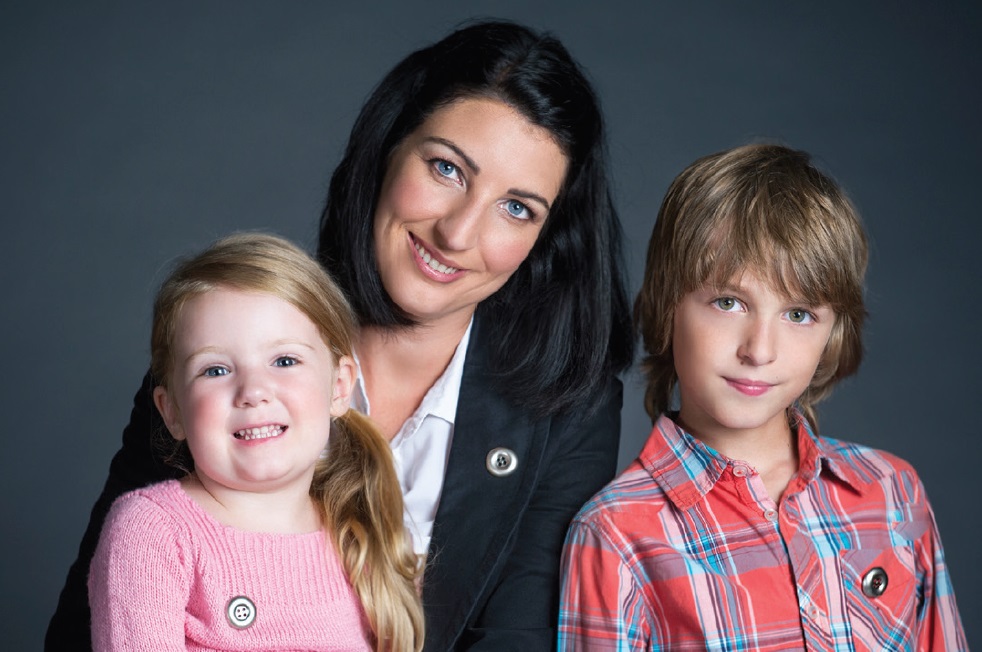 All this experience and knowledge are incredibly valuable to the community. We should therefore all benefit from this. We should collectively benefit from listening to seniors, asking them to express themselves about current challenges ; we should give them a more active role, include them in decision making, and take advantage of their wisdom and education. They should be guaranteed active participation and the right to be full-fledged citizens.
All this experience and knowledge are incredibly valuable to the community. We should therefore all benefit from this. We should collectively benefit from listening to seniors, asking them to express themselves about current challenges ; we should give them a more active role, include them in decision making, and take advantage of their wisdom and education. They should be guaranteed active participation and the right to be full-fledged citizens.
We should ensure that their sense of belonging to Quebec society is preserved.
Commitments
Since ensuring an adequate quality of life for seniors is a shared responsibility, the Réseau FADOQ asks Quebec society to formally include health, security, welfare and belonging in all their decisions, policies, management methods and relationships for all people 50 and older.
The Réseau FADOQ hopes that the action plans encompassing the principles of an adequate quality of life for seniors will be adopted by citizens, governmental institutions, private businesses and community. To do so, we encourage you to commit meaningfully by signing the social contract and wearing the silver button proudly.
Think And Act
All organizations have their own preoccupations but one unique reality brings them together : everyone ages.
While remaining faithful to your philosophy and reality, we encourage you to act to ensure an adequate quality of life for today’s and tomorrow’s seniors.
They deserve the help of as many people as possible to think and act for a society that actively includes all its citizens.
By acknowledging that we share a common responsibility to protect the quality of life of seniors, we formally pledge to :
- Take into account the quality of life of seniors in all our decisions, practices, management choices and relationships to ensure that our actions favour the maintenance of an adequate level of quality of life for all seniors.
- Uphold the moral and physical wellbeing of seniors in all our actions.
- Acknowledge our common responsibility towards seniors to guarantee adequate access to all necessary services to maintain their health, security, welfare and sense of belonging to society.
- Contribute to the best of our abilities, as civil society stakeholders, by taking all the necessary actions to ensure an adequate quality of life for seniors.

Autres articles
Avez-vous lu?
- Les petites résidences pour aînés sont fragiles
- La résidence Villas des Rivières ne fermera pas !
- Villas des Rivières : pas de progrès
- Villas des Rivières
- Villas des Rivières de Bedford : des résidents déplacés ?
- Université du troisième âge
- Université du troisième âge (UTA)
- La pandémie du vieillissement
- Connaissez-vous l’université du troisième âge ?
- Programmation hiver 2020









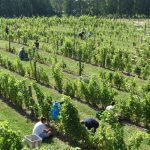







Laisser un commentaire
Nous n’acceptons pas les commentaires anonymes et vous devez fournir une adresse de courriel valide pour publier un commentaire. Afin d’assumer notre responsabilité en tant qu’éditeurs, tous les commentaires sont modérés avant publication afin de nous assurer du respect de la nétiquette et ne pas laisser libre cours aux trolls. Cela pourrait donc prendre un certain temps avant que votre commentaire soit publié sur le site.